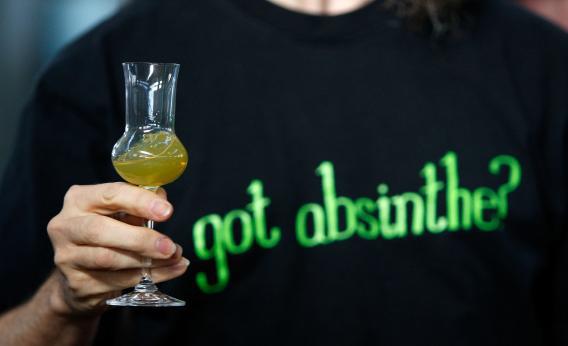Washington, D.C. isn’t particularly known for good government practices or a commitment to free markets but one area where the city has things right is the world of wholesale alcohol distribution. The vast majority of jurisdictions in the United States saddle retailers with the elaborate three-tier alcohol distribution system whereby a bar may not buy product directly from a producer. Exceptions are frequently made for brewpubs selling their own wares, but if you want to sell a bottle of liquor or a keg of beer from some other state, then you have to find a middleman who wants to sell it to you.
That greatly reduces the range of products that are available, and can raise prices by limiting competition and inserting extra layers of profit-taking. As Jessica Sidman explains in the City Paper, D.C.’s lack of such a system is helping to spur the rise of niche bars that go deep with a very long list of some particular spirit. She cites absinthe-focused Libertine, tequila-focused El Centro, rum-focused Hogo, whiskey-focused Jack Rose, sherry-focused Mockingbird Hill, etc.:
Part of what allows D.C. bars to build such large inventories are its unique alcohol import laws, which make it possible to obtain bottles directly or from outside distributors if they aren’t available from D.C.-licensed distributors. That’s not possible for bars in Maryland, Virginia, and elsewhere in the country.
An important point about this, it seems to me, is that when you make it logistically easier for bars to stock obscure products you create opportunities to increase the skill profile of the bartending occupation:
In addition to flights ($12 to $25) to show off a spectrum of different styles of rum, [Tom] Brown relies on bartenders to guide drinkers toward brands that are better than their Bacardi standby but have the same price tag. The same is true at El Centro, where bartenders must go through a two-week training, at the end of which they’re tested about the products, the production process of tequila and mezcal, and the regions where the spirits are made. In addition, all the bar managers will soon take a tequila sommelier class.
As I’ve said before, policymakers need to start taking food service seriously as a sector of the economy in which large numbers of people work. Creating more opportunities for differentiation, competition, and upskilling is part of the path to more jobs and more opportunities. The three-tier system originally came about as a consequence of prohibition. But if policymakers want to curtail problem drinking (which they should) the reasonable course of action is higher alcohol taxes. That targets the issue much better, and instead of generating rents for booze distributors generates useful revenue.
